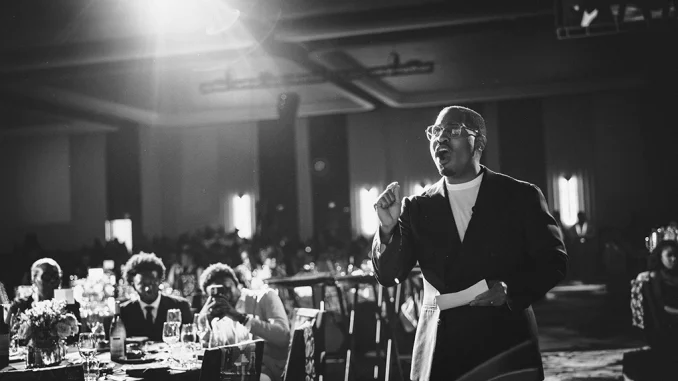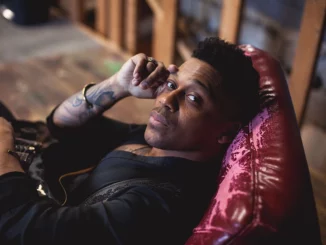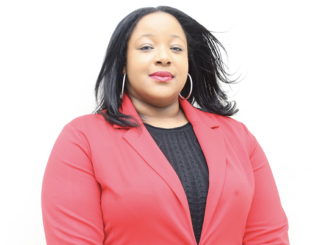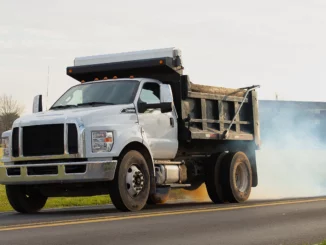
By Staff
Samaad Wes Keys, Ph.D., is a nationally recognized higher education strategist, philanthropy leader, and cultural voice whose career has been defined by a relentless commitment to equity and transformation. From his beginnings as a first-generation college student at Morehouse to his leadership at organizations such as UNCF, APLU, and the Southern Education Foundation, and now as a Senior Program Officer at the Gates Foundation, Dr. Keys has consistently bridged research, practice, and philanthropy to dismantle systemic barriers in higher education. Beyond institutional transformation, he is the founder of MomentumED Strategies and the Legacy Park Project, ventures that reflect his vision for community impact and legacy-building. Through his podcast, A Sip With Samaad, he expands this mission by creating space for authentic dialogue, storytelling, and cultural reflection—offering both thought leadership and a deeply personal exploration of identity, resilience, and innovation.
What first inspired you to pursue a career in higher education and philanthropy, and how has that vision evolved over the years?
As a first-generation college student, I never envisioned higher education as a career. The roles I aspired to were the ones I could see—teacher, preacher, doctor, lawyer. I became a high school teacher, and it was in that classroom that my trajectory shifted. I recognized how many students, bright and capable, were still underprepared for postsecondary life. That’s when I realized success couldn’t be left to individual resilience; systems had to be built to support students more effectively.
My early work focused on bridging research and practice so that evidence of what worked could actually inform change. Over time, that evolved into scaling innovations across institutions. Moving into philanthropy was a natural progression—it provided the resources to catalyze systemic change at scale. Today, I see my journey as a progression from identifying problems, to testing solutions, to resourcing transformation, and ultimately preparing to lead those changes directly.
As a Morehouse College graduate and someone who has held senior roles at UNCF, APLU, and the Southern Education Foundation, what lessons stand out to you as most transformative in shaping your leadership philosophy?
Morehouse was foundational because it was the first time I felt surrounded by peers who reflected my own aspirations. It taught me the power of inquiry and gave me permission to think beyond an “industrial society” mindset of simply following directions.
At UNCF, I learned the importance of resource mobilization and collective strategy across institutions. At APLU, I saw how research could shape federal policy and influence national conversations—our policy brief on inequitable HBCU funding is now preserved in the Congressional archives. The Southern Education Foundation grounded me in governance and policy and gave me a deep appreciation for the resilience of institutions on the frontlines of access and equity.
Each experience sharpened my belief in the power of networks, the courage to challenge inherited structures, and the need to plan not just for today, but for generations to come.
Your current role in philanthropy positions you at the intersection of philanthropy and education. How do you see the role of philanthropy in accelerating equity and institutional transformation in higher education?
Philanthropy matters most when it moves beyond funding projects to transforming systems. The question is always: accelerating toward what? For me, equity means ensuring all students—particularly those historically excluded—can earn credentials of real value.
That conviction is personal. When I graduated from Morehouse, my income tripled overnight compared to what my household had been. That is the transformative power of a degree of value. Philanthropy’s role is to help institutions design for that kind of impact—strengthening systems, expanding capacity, and resourcing innovation that lasts long beyond any single grant.
What has been the most rewarding—and perhaps the most challenging—aspect of leading national initiatives to improve outcomes for underrepresented student populations?
The most rewarding moments are when data meets human stories—seeing retention or graduation rates climb, then hearing from students who say they felt seen and supported in ways I once wished I had been. That combination affirms that the work is not theoretical; it is life-changing.
The greatest challenge is balancing urgency with patience. Students cannot wait, yet true institutional transformation is slow and complex. Leading at scale means navigating that tension, recognizing the stakes, and pushing institutions toward lasting change while keeping equity front and center.
What inspired you to create A Sip With Samaad, and how does it connect to your professional work in higher education and community transformation?
I launched A Sip With Samaad as I turned 40, partly as a social experiment and partly as a way to give space to the many identities I carry—educator, strategist, father, partner, same-gender-loving Black man. It became a place where I could reflect, laugh, and grieve, including sharing deeply personal stories like the loss of my mother.
Though it doesn’t always intersect directly with my professional work, the podcast is another form of transformation—documenting stories, uplifting voices, and affirming the fullness of Black male identity. It allows me to lead in a way that is authentic and culturally grounded.
The podcast title suggests a sense of intimacy and thoughtful dialogue. What types of conversations are you most eager to foster with your guests?
I want the podcast to reflect the fullness of Black male identity, beyond stereotypes or narrow definitions. It’s about complexity—navigating leadership, fatherhood, resilience, and love in ways that honor our humanity. My goal is to create space where Black men feel reflected more honestly, and where listeners gain deeper understanding of the layered realities we carry.
How do you envision the podcast contributing to your broader mission of advancing equity, legacy, and innovation?
I see podcasting as a form of social justice. For too long, narratives about Black people have been told for us, not by us. With A Sip With Samaad, I am claiming space to tell my story and invite others to do the same.
It also reflects my belief in storytelling as both art and strategy—capable of healing, disrupting, and inspiring. The podcast becomes a living record, an archive that preserves voices and perspectives in real time. In that way, it connects directly to my mission of equity, legacy, and innovation.
Have there been any conversations on the podcast that have personally shifted your perspective or inspired you in unexpected ways?
Yes. Some of the most powerful moments have come when guests allowed themselves to be deeply vulnerable. Those conversations reminded me that storytelling is not performance but truth-telling.
For me, sharing about my mother’s struggles and my own grief was transformative. It opened space for others to connect through their own stories of resilience and loss. More recently, speaking about my journey into fatherhood through surrogacy helped broaden narratives about what family can look like. These moments affirmed that the podcast is not just about dialogue—it’s about building community and legacy through truth and authenticity.
You’ve established ventures like MomentumED Strategies and the Legacy Park Project, both aimed at equity-focused community impact. How do these entrepreneurial efforts complement your work within major institutions?
Entrepreneurship gives me space to innovate more quickly and stay close to community voice. MomentumED Strategies helps mission-driven organizations move from vision to execution, applying lessons from philanthropy in practical, hands-on ways.
The Legacy Park Project reflects my commitment to legacy and memory—preserving sacred spaces and honoring lives that might otherwise be overlooked. Both ventures keep me grounded in humanity while complementing my institutional work. Together, they allow me to advance equity at multiple levels—from national systems to local communities.
As you think about building your profile further in the academic space, what kinds of opportunities or platforms are you most seeking to engage?
I want to be in spaces where the future of higher education is being actively shaped—campuses, national convenings, and thought leadership platforms. Speaking, publishing, and writing allow me to influence the conversation while staying engaged with those on the ground: students, faculty, and community leaders.
My podcast is also part of that profile, because it shows leadership rooted in authenticity, not just professional expertise. Ultimately, I want to challenge the field to think bigger about higher education—not only as workforce preparation, but as a force for liberation and generational transformation.
What role do you see yourself playing in shaping the future of higher education—whether through scholarship, policy influence, or community innovation?
I see myself as a bridge-builder who connects research, practice, resources, and community voice. My journey has given me a panoramic view of higher education—from lived student experiences to institutional strategy, policy advocacy, and philanthropy.
That perspective positions me to help reimagine what higher education can be: a space of liberation, leadership development, and cultural transformation. Whether through institutional leadership, policy influence, or innovation, I want to create systems that not only provide access, but also ensure students thrive.
How do you define legacy, and what do you hope your legacy will be as both an academic leader and cultural voice?
Legacy is the imprint we leave behind—how conditions shift so others can walk more freely than we did. For me, it’s both personal and collective. Personally, it’s about my daughter and family. Collectively, it’s about students, institutions, and communities whose paths have been widened by my work.
I hope my legacy reflects resilience, authenticity, and transformation. As an academic leader, I want to be remembered for strengthening institutions and advancing equity. As a cultural voice, I want to be known for storytelling—documenting truths in our own voices and inspiring future generations. Ultimately, I want my legacy to affirm that higher education can be a force for liberation, and that leadership is about building systems and stories that outlast us.










